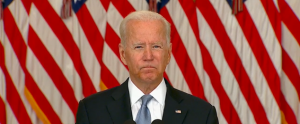Press TV: A panel of international experts at leading US think tank Wilson Center says the United States has inadvertently created an “axis of the sanctioned”, calling on the country’s leaders to review the sanctions policy.
The US, the experts said, must rethink its use of oil and other sanctions after the economic pressure has pushed China, Iran, Russia and Venezuela into strong trading partnerships with each other rather than isolating the countries as Washington intended.
“We’ve pushed together the sanctioned countries and given them a reason to create an alliance and form financial ties that allow them to evade those sanctions,” S&P Global Platts quoted James Bosworth, author of the Latin America Risk Report, as saying.
“Any individual country being sanctioned could be punished, but together they have the ability to conduct back trading,” he added.
The Biden administration has indicated to roll back its predecessor’s wrong policies, but talks in Vienna now entering a fourth month to remove sanctions on Iran have exposed Washington’s aversion to removing the core elements of the coercive measures.
S&P Global Platts, a London-based provider of energy and commodities information, said it expects the US to remove sanctions on Iran’s oil, petrochemical, shipping, and other sectors by September when a new government would be in office in Tehran.
Iran’s President-elect Ebrahim Raeisi has said while he will support any negotiations that meet the country’s national interests, he “will not tie the economic situation and people’s livelihoods to these talks”.
US President Joe Biden has indicated that he would use the revival of the nuclear deal with the Islamic Republic as a springboard to a broader agreement that would restrict Iran’s missile program and regional role.
While the United States is facing an impossible mission against the new Iranian administration to expand the scope of the accord, expectations from a likely agreement are equally subdued.
A trade body for the global financial industry has said that Iran’s economic benefits would be “modest” even if the protracted talks currently underway in Vienna to coax the US into removing its sanctions on Tehran bore fruit.
“The likely outcome for the JCPOA negotiations is a return to the 2015 agreement, which would keep many sanctions in place. Such a limited agreement would deter significant investment by Western firms, making a sharp pickup in growth unlikely,” the Institute of International Finance (IIF) said in a new report.
After years of experience with the false promises of global economic liberalism, the prevailing idea is that the better opportunities for Iran’s economic growth lie in a resistance economy, which builds an economically integrated regional bloc.
Meanwhile, a pragmatic cooperation has evolved in recent years into a partnership among the countries more pointedly opposed to the US-led international order.
Bosworth told the Wilson Center panel that Iran, China and Russia have drawn Venezuela into this alliance.
“Iran is getting benefits from this, and so is Venezuela,” Bosworth said. “If they weren’t benefiting financially, they probably would work together far less.”
Over the past decade, the United States has been waging a new warfare consisting of a novel set of financial strategies that harness the international financial and commercial systems to ostracize its enemies and constrict their funding flows with the aim of inflicting maximum pain.
While the US has found new ways to isolate perceived enemies, the countries have adapted by using separate financial and monetary systems that avoid the pressure leveled by Washington.
There are increasing efforts even among US allies to limit the United States’ unilateral leveraging of multilateral forums such as the National Money Laundering Strategy (FATF) and the Society for Worldwide Interbank Financial Telecommunication (SWIFT) to squeeze countries.
According to Platts, Indian, Spanish and Italian refiners are looking for the Biden administration’s easing of sanctions on Venezuela and Iran to resume crude shipments.
A new report released by the US-China Economic and Security Review Commission has also detailed how Iran and China have grown closer over recent years, developing economic, intelligence sharing and diplomatic ties in a partnership broadly “opposed to the US-led international order”.
According to the authors of the report, while Beijing is wary of a conflict between Tehran and Washington threatening energy markets, the two US adversaries find common ground in counterbalancing Western systems and deriving mutual benefit.
The relationship has solidified in recent years, including through a recent formalized economic and security agreement, the authors say, outlining an expansion in Chinese presence in Iranian industries as well as $400 billion of investment.
Some experts dismissed the arrangement and the advertised investment as overblown, but it is evidence of ongoing partnership, the authors say.
“Over the last two decades, China has stepped in as an increasingly important economic partner for Iran as sanctions caused European and US companies to retreat from the country,” they said.
China-Iran annual trade between 2003 and 2014 increased more than nine-fold from $5.6 billion to $51.8 billion, an all-time high. Compared to the steady expansion of Sino-Iranian commercial ties, trade between Iran and the EU decreased by 55 percent over the same period.
Chinese investment in Iran has also expanded, increasing by 541 percent from $468 million in 2004 to $3 billion in 2019, with investments concentrated primarily in the energy and raw materials sectors.
While partnership between Beijing and Tehran may include some caveats, the authors of the report conclude that the two countries’ “shared anti-US policy orientation has long-term implications for Washington’s interests in both the Middle East and the Indo-Pacific”.




